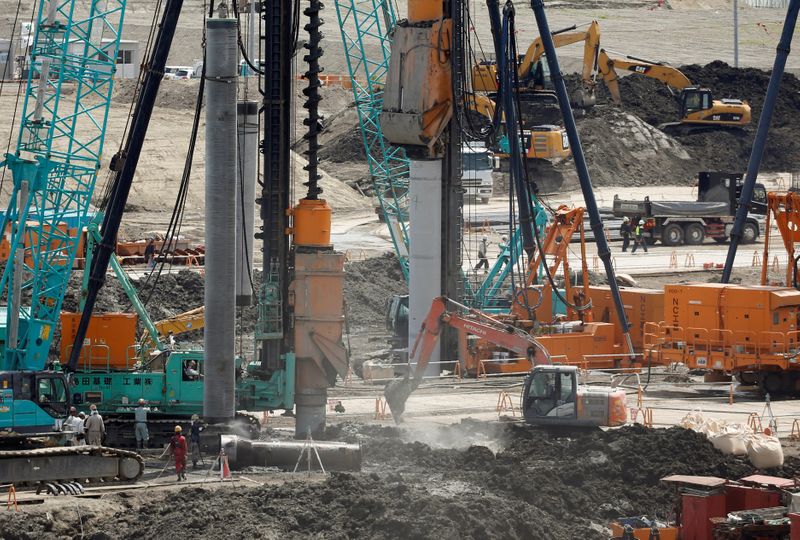By Daniel Leussink
TOKYO (Reuters) - Japan's core machinery orders rebounded sharply in October from the previous month's drop, the government said on Wednesday, a welcome development for an economy emerging from a deep coronavirus slump.
The jump in core orders suggests a modest revival in corporate spending, seen by policymakers as necessary to accelerate the recovery in the world's third-largest economy.
Core machinery orders, a highly volatile data series regarded as an indicator of capital spending in the coming six to nine months, soared 17.1% in October, recouping the previous month's 4.4% drop.
The increase, the largest month-on-month rise since comparable data became available in 2005, was much better than a 2.8% expansion forecast by economists in a Reuters poll.
"The global economy is in quite a weak state aside from China, so it's hard to imagine sharp increases in spending aimed at supporting exports," said Ayako Sera, market strategist at Sumitomo Mitsui (NYSE:SMFG) Trust Bank.
"Domestic production remains in a relatively healthy trend because of a decrease in inventories in April and May."
By sector, orders from manufacturers rose 11.4%, boosted by non-ferrous metals, including a large order of seven billion yen ($67.22 million), while those from non-manufacturers advanced 13.4%, led by finance and insurance, the Cabinet Office data showed on Wednesday.
The government raised its assessment on machinery orders, saying they had stopped falling.
Japan's cabinet on Tuesday approved a fresh $708 billion economic stimulus package to boost the economy.
The package includes about $385 billion in direct fiscal spending, while also targeting investment in new growth areas such as green initiatives and digital innovation.
Japan's economy has been recovering from the shock of the coronavirus mainly thanks to a rebound in exports and consumption in the third quarter.
But some policymakers, including the central bank, are worried about a slowdown in capital spending, which threatens to hurt domestic demand.
A government official cautioned that the month-on-month core machinery orders data was subject to an adjustment based on seasonal factors, potentially leading to a downward revision.
Compared to the same month a year earlier, core machinery orders, which exclude those for ships and electricity, rose 2.8% in October, beating an 11.3% decline expected by economists.
Sera said that rise caught her by surprise, and signalled a gradual recovery in capital spending.

"There's no mistake there was a slight recovery in capital expenditure," she said, but warned it was too early to call a sustained turnaround.